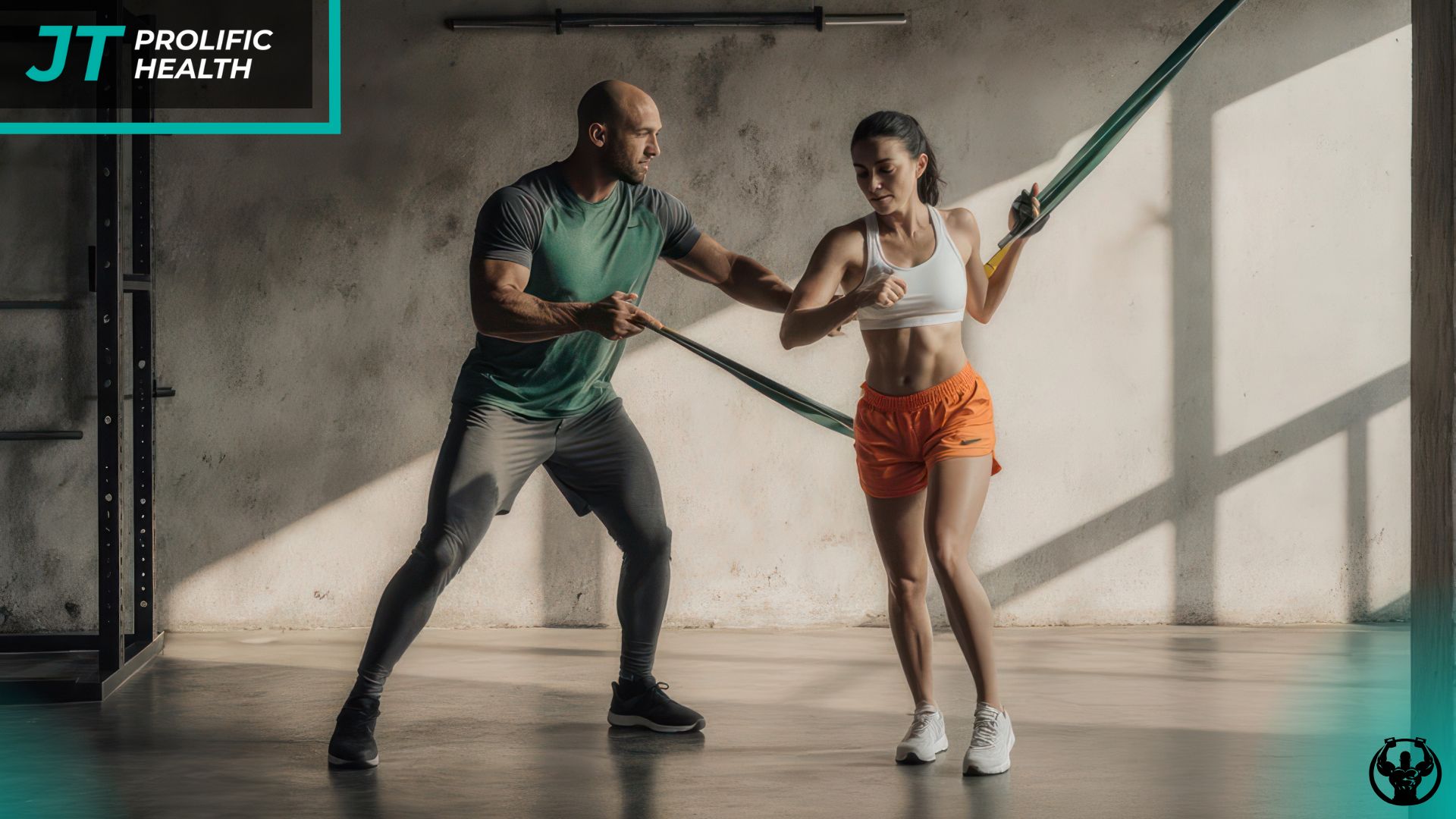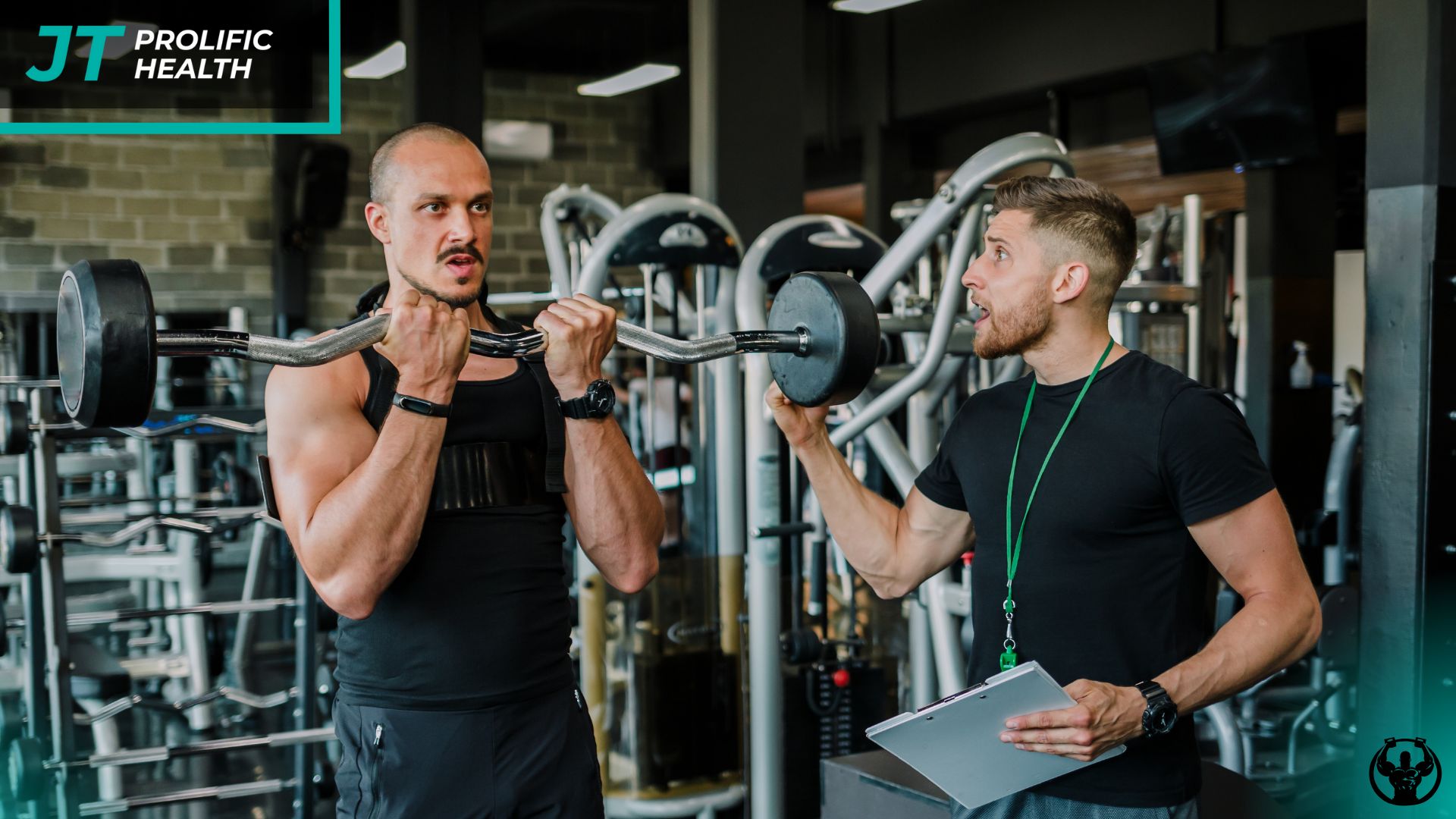Making the decision to work with a personal trainer represents a significant investment in your health and fitness journey. However, what happens when that professional relationship isn’t delivering the results you expected? Knowing when to consider switching personal trainers in Richmond BC can be the difference between achieving your fitness goals and remaining stuck in an ineffective routine that wastes both your time and money.
The personal training industry in Richmond has grown substantially over the past decade, offering residents access to a diverse range of qualified professionals with varying specialties, approaches, and personalities. While this abundance of choice is beneficial, it also means that finding the right fit isn’t always immediate. Sometimes, what initially seemed like a perfect match can evolve into a relationship that no longer serves your evolving needs, goals, or circumstances.
Recognizing the signs that indicate it might be time for a change requires honest self-reflection and an understanding of what constitutes effective personal training. Many clients struggle with this decision because they feel loyal to their current trainer, worry about hurting feelings, or fear that switching might disrupt their progress. However, staying in an ineffective training relationship can actually hinder your progress and lead to frustration, plateaus, or even injury.
The fitness landscape in Richmond BC offers numerous opportunities to find a trainer who truly understands your unique needs, whether you’re a beginner just starting your fitness journey, an athlete looking to enhance performance, or someone recovering from an injury. Understanding when to make a change and how to navigate that transition can transform your entire approach to fitness and help you achieve the results you’ve been working toward.
This comprehensive guide will explore the key indicators that suggest it’s time to consider switching trainers, how to evaluate your current training relationship objectively, and the steps to take when making this important decision. By the end, you’ll have the knowledge and confidence to make informed choices about your personal training journey in Richmond BC.
Key Takeaways
For additional context, see this comprehensive guide.
- Lack of Progress Tracking: If your trainer isn’t consistently monitoring and documenting your progress through measurable metrics, it may be time to find someone who takes a more systematic approach to your fitness journey.
- Poor Communication: Effective personal training requires clear, ongoing communication about your goals, concerns, and feedback. A trainer who doesn’t listen or respond appropriately to your needs isn’t providing the service you deserve.
- Inadequate Program Modification: Your workout routine should evolve as you progress. Trainers who continue using the same exercises and intensity levels without appropriate modifications may be limiting your potential for growth.
- Safety Concerns: Any trainer who compromises your safety through poor form instruction, inappropriate exercise selection, or pushing you beyond safe limits should be replaced immediately.
- Mismatched Specialization: If your goals have evolved or you’ve discovered specific needs that require specialized knowledge your current trainer doesn’t possess, seeking someone with relevant expertise is crucial.
- Scheduling and Reliability Issues: Consistent cancellations, chronic lateness, or inability to accommodate your schedule can significantly impact your progress and motivation.
- Personality and Motivation Mismatch: The trainer-client relationship should be motivating and supportive. If your personalities clash or their coaching style doesn’t resonate with you, it can hinder your success.
- Stagnant Results: Extended periods without visible progress, despite consistent effort and adherence to the program, often indicate the need for a fresh perspective and new training approach.
Understanding the Signs: When Your Training Relationship Isn’t Working

Recognizing when your personal training relationship has run its course requires careful evaluation of both tangible and intangible factors. The most obvious indicator is a lack of progress toward your stated goals, but this can manifest in various ways that aren’t always immediately apparent. Physical progress might stall, but you might also notice decreased motivation, reduced enjoyment of your workouts, or a growing sense that your sessions have become routine rather than challenging.
One of the most critical signs to watch for is inadequate progress tracking. Professional trainers should be systematically monitoring your development through various metrics appropriate to your goals, whether that’s strength gains, cardiovascular improvements, body composition changes, or functional movement enhancements. If your trainer relies solely on subjective assessments or fails to document your progress consistently, they may not be providing the level of service you need to achieve optimal results.
Communication breakdown represents another significant red flag in the trainer-client relationship. This can manifest as a trainer who doesn’t listen to your concerns, fails to explain exercises or program rationale clearly, or dismisses your feedback about what is or isn’t working. Effective personal training is collaborative, requiring open dialogue about your experiences, preferences, and any challenges you’re facing. When this communication becomes one-sided or ineffective, the entire training relationship suffers.
Safety concerns should never be overlooked or rationalized away. If your trainer consistently demonstrates poor knowledge of proper form, pushes you to lift weights or perform exercises that feel unsafe, or doesn’t provide adequate instruction for complex movements, your long-term health could be at risk. Professional trainers should prioritize injury prevention and create an environment where you feel confident and secure during every exercise.
Evaluating Progress and Goal Alignment


Progress evaluation should be an ongoing component of your personal training experience, not something that happens sporadically or only when you raise concerns. A quality trainer will establish baseline measurements during your initial assessment and regularly revisit these metrics to gauge improvement and adjust your program accordingly. This systematic approach to monitoring client development ensures that your training remains effective and goal-oriented.
When evaluating your progress, consider both quantitative and qualitative measures. Quantitative progress might include increased lifting capacity, improved cardiovascular endurance, reduced body fat percentage, or enhanced flexibility measurements. Qualitative improvements could involve better sleep quality, increased energy levels throughout the day, improved mood, or greater confidence in your physical abilities. A comprehensive training program should address multiple aspects of fitness and well-being.
Goal alignment becomes particularly important as your fitness journey evolves. What you wanted to achieve when you first started training might have changed significantly as you’ve gained experience, knowledge, and confidence. Perhaps you initially focused on weight loss but now want to build muscle, or maybe you’ve developed an interest in specific athletic performance that requires specialized training approaches. Your trainer should be adaptable enough to evolve with your changing needs or honest enough to refer you to someone better suited to your new objectives.
The timeline for seeing results varies significantly depending on your starting point, goals, and the type of program you’re following. However, most people should notice some improvements within the first 4-6 weeks of consistent training. These might be subtle initially – perhaps you feel stronger during daily activities or notice that exercises that once felt challenging have become more manageable. If you’re not experiencing any positive changes after 8-12 weeks of consistent training and adherence to your program, it may be time to evaluate whether your current approach is effective.
Sometimes, plateaus are natural and temporary, requiring only minor adjustments to overcome. However, extended periods of stagnation often indicate that your program needs significant modification or that your trainer lacks the knowledge or creativity to help you break through barriers. Professional program design should include strategies for progressive overload and variation to prevent long-term plateaus.
Communication and Professional Standards


Effective communication forms the foundation of any successful personal training relationship. Your trainer should demonstrate active listening skills, ask relevant questions about your experiences, and provide clear explanations for exercise selections, program modifications, and training methodologies. This communication should be bidirectional, with your trainer actively seeking your feedback and responding appropriately to your concerns or suggestions.
Professional standards in the personal training industry extend beyond just having relevant certifications, though those credentials are certainly important. Your trainer should maintain consistent punctuality, dress appropriately, demonstrate ongoing education and skill development, and treat you with respect and professionalism at all times. They should also maintain appropriate boundaries, focusing sessions on your fitness goals rather than personal conversations or distractions.
Red flags in communication might include a trainer who seems distracted during sessions, frequently cancels or reschedules appointments, or makes you feel uncomfortable through inappropriate comments or behavior. Additionally, trainers who become defensive when you ask questions about their methods or who dismiss your concerns without adequate explanation may not be providing the level of service you deserve.
The ability to explain complex concepts in understandable terms is a hallmark of an effective trainer. Whether discussing exercise physiology, nutrition principles, or program design rationale, your trainer should be able to communicate information in a way that enhances your understanding and empowers you to make informed decisions about your fitness journey. This educational component is particularly valuable for those new to fitness who are building foundational knowledge.
Professional trainers should also demonstrate cultural sensitivity and adaptability, recognizing that each client brings unique backgrounds, experiences, and preferences to their fitness journey. In Richmond’s diverse community, this cultural competence becomes particularly important for creating inclusive and comfortable training environments for all clients.
Specialization and Expertise Considerations
As your fitness journey progresses, you may discover that your needs require specialized knowledge or experience that your current trainer doesn’t possess. This realization doesn’t necessarily reflect poorly on your trainer’s abilities; rather, it highlights the importance of matching specific expertise with individual client needs. The fitness industry encompasses numerous specializations, from sports performance and injury rehabilitation to senior fitness and prenatal exercise programming.
For clients dealing with injuries or chronic conditions, working with trainers who have specific experience in exercise modification and rehabilitation becomes crucial. These professionals understand how to work safely within the limitations imposed by various conditions while still providing effective training that supports recovery and long-term health goals. General fitness trainers may lack the specialized knowledge needed to address complex medical considerations safely.
Similarly, if your goals have evolved to include specific athletic performance objectives, powerlifting, bodybuilding, or other specialized pursuits, you may benefit from working with someone who has extensive experience in those areas. These trainers understand the nuanced programming, periodization, and technique requirements that general fitness training might not address adequately.
Age-specific considerations also play a role in trainer selection. Older adults may benefit from trainers who specialize in senior fitness and understand the unique challenges and opportunities that come with aging. Conversely, young athletes might need trainers with experience in youth development and age-appropriate training methodologies.
The key is recognizing when your needs have evolved beyond your current trainer’s area of expertise and being willing to seek out professionals who can better serve your specific requirements. Many trainers are honest about their limitations and will refer clients to colleagues when appropriate, which actually demonstrates professionalism and client-centered service.
Making the Transition: How to Switch Trainers Professionally
Once you’ve decided that switching trainers is the right choice, handling the transition professionally and respectfully benefits everyone involved. The fitness community in Richmond BC is relatively close-knit, and maintaining positive relationships can be valuable for your long-term success and reputation within local fitness circles.
Begin by having an honest conversation with your current trainer about your concerns and goals. Sometimes, issues can be resolved through open communication, and your trainer might be willing to modify their approach or refer you to a colleague who better matches your needs. This conversation also provides an opportunity to express appreciation for the positive aspects of your training relationship while clearly communicating your reasons for considering a change.
When searching for a new trainer, take time to research potential candidates thoroughly. Look for professionals whose specializations align with your current goals, read reviews and testimonials, and consider scheduling consultation sessions with multiple trainers before making a decision. This investment in the selection process can help ensure that your next training relationship is more successful and longer-lasting.
Consider the practical aspects of switching, including any contractual obligations with your current trainer or gym, scheduling considerations, and potential differences in training costs or location. Some trainers require advance notice for cancellations, and understanding these requirements can help you plan your transition timeline appropriately.
During your search for a new trainer, pay attention to how potential candidates handle the consultation process. Do they ask detailed questions about your goals, health history, and previous training experiences? Do they explain their training philosophy and methods clearly? Are they interested in understanding why you’re making a change? These interactions can provide valuable insights into their professionalism and approach to client service.
Remember that finding the right trainer might take time, and it’s perfectly acceptable to work with someone temporarily while continuing to search for the ideal long-term match. Many successful clients in Richmond have worked with multiple trainers throughout their fitness journey, each contributing different skills and perspectives to their overall development.
At Prolific Health, we understand that the trainer-client relationship is deeply personal and that finding the right fit is crucial for achieving your fitness goals. Our team of experienced professionals in Richmond BC is committed to providing personalized, results-driven training that evolves with your changing needs and objectives. We believe in transparent communication, evidence-based programming, and creating supportive environments where clients can thrive and achieve lasting success.
Frequently Asked Questions
How long should I give a new trainer before deciding if they’re the right fit? Generally, you should allow 4-6 sessions to evaluate the basic compatibility and communication style, and 8-12 weeks to assess whether you’re making meaningful progress toward your goals. However, safety concerns or major communication issues should be addressed immediately.
Is it normal to feel guilty about switching trainers? Yes, it’s completely normal to feel some guilt, especially if you’ve developed a personal relationship with your trainer. Remember that this is a professional service, and you have every right to seek the best possible support for your fitness goals.
Should I tell my new trainer why I switched from my previous one? Being honest about your previous experience can help your new trainer understand your needs better and avoid similar issues. Focus on what you’re looking for rather than criticizing your former trainer.
How do I know if my lack of progress is due to my trainer or my own effort? Honest self-assessment is crucial. Consider whether you’ve been consistent with sessions, following nutrition guidance, and putting forth genuine effort. If you can honestly say yes to these factors but still aren’t seeing results, the program or trainer might need to change.
What should I look for in a new trainer’s qualifications? Look for current certifications from reputable organizations, relevant continuing education, experience with clients who have similar goals to yours, and positive references or testimonials from past clients.
Can I switch trainers within the same gym without causing problems? Most professional gyms handle trainer switches regularly and have policies in place to manage these transitions smoothly. Speak with gym management about their procedures for changing trainers.
How much should I expect to invest in finding the right trainer? Many trainers offer consultation sessions or trial packages at reduced rates. Budget for potentially meeting with 2-3 trainers before finding the right fit, and consider this an investment in your long-term success.
What if I want to return to a previous trainer after trying someone new? Professional trainers understand that clients sometimes explore other options. If you handled the initial transition respectfully, most trainers would be open to working with you again if their schedule allows.
Conclusion
Deciding when to switch personal trainers in Richmond BC is a significant decision that requires careful consideration of multiple factors, from progress tracking and communication quality to safety concerns and evolving fitness goals. The signs that indicate it’s time for a change aren’t always obvious, but they typically involve some combination of stagnant progress, poor communication, safety issues, or misaligned expertise.
Remember that your personal training investment should yield measurable results and provide you with the knowledge, motivation, and support needed to achieve your fitness objectives. When these elements are missing from your current training relationship, exploring other options isn’t just acceptable – it’s necessary for your continued success and well-being.
The process of switching trainers, while sometimes uncomfortable, can be handled professionally and respectfully. Taking time to evaluate your needs carefully, research potential new trainers thoroughly, and communicate honestly throughout the transition will help ensure that your next training relationship is more successful and better aligned with your goals.
Richmond BC’s fitness community offers numerous qualified professionals with diverse specializations and approaches. Whether you need specialized muscle building expertise, support for busy professional schedules, or guidance to build confidence in your fitness journey, the right trainer is available to help you achieve your objectives. The key is being willing to make changes when necessary and advocating for the quality of service you deserve in your fitness journey.




